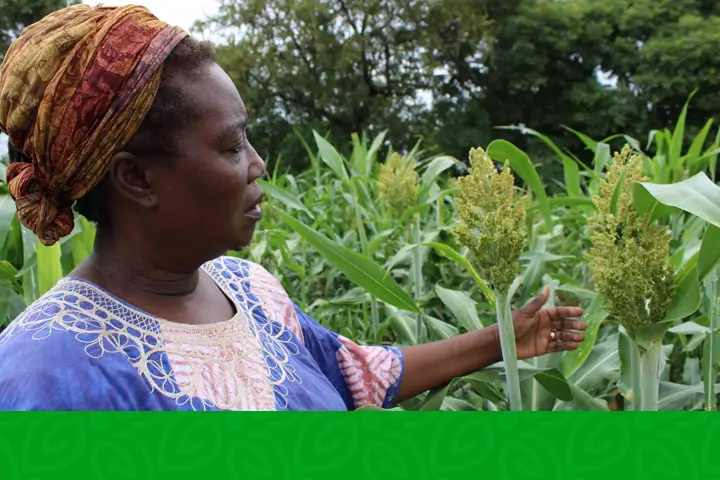
In the arid landscapes of Zimbabwe, where agriculture is the lifeblood of rural communities, the Livestock Production Systems in Zimbabwe (LIPS-Zim) project is heralding a transformational change. By introducing sustainable farming practices and providing vital support to smallholder farmers, LIPS-Zim is not only enriching the lives of these hardworking individuals but also bolstering food security and economic stability.
The Power of Fodder Crops: Fodder crops such as velvet bean (mucuna pruriens) and lab-lab (lablab purpureus) are emerging as game-changers for subsistence farmers like Edson Mbedzi of Chamnangana village, Beitbridge district in Matabeleland South. Thanks to the intervention of LIPS-Zim, Mr. Mbedzi, along with 390 other farmers, received precious fodder seeds and technical assistance. This support has empowered him to transition from merely producing livestock feed for his family’s sustenance to commercializing hay bale production, a venture with promising returns.
During the 2022/23 season, Mr. Mbedzi yielded an impressive 31 bales, each weighing around 20 kilograms. His success has motivated him to sell these bales, turning his agricultural efforts into a profitable venture. Through the business development training provided by LIPS-Zim, he now looks forward to selling each hay bale at a significantly higher rate of US$7, marking a game-changing moment for his family’s prosperity.
A Collaborative Approach to Success: The story of transformation extends beyond Mr. Mbedzi. Zondani Sibanda, hailing from Madaulo village, ward 3, Beitbridge, is on a mission to commercialize velvet bean production in partnership with fellow farmers in the project. Beyond just sowing seeds, Sibanda has even engaged a local livestock feed manufacturing company to supply velvet bean seed grain, with orders amounting to five tonnes. This collaborative effort amplifies the impact of LIPS-Zim, showcasing the potential for widespread change within communities.
Training for a Resilient Future:
Sikhalazo Dube, the project coordinator for LIPS-Zim, highlights the critical role of training in transforming livelihoods. Thirteen farmers from Buhera ward 13 prepared 140 bales of native grass hay, with 70 bales sold at US$1 each. In ward 15, two farmers produced 25 bales of lablab hay, fetching US$2 per bale from a local beef feedlot. Moreover, six farmers received training on fodder conservation and sorghum-velvet bean mixed silage making through on-farm demonstrations.
Addressing Agricultural Challenges:
Zimbabwe, a nation where over half of the population depends on agriculture, faces challenges such as climate change, input shortages, and limited knowledge of good agricultural practices. LIPS-Zim, funded by the European Union, operates in nine districts in regions IV and V, addressing these challenges head-on. These semi-arid regions, marked by minimal rainfall and frequent droughts, become fertile ground for agricultural productivity through the project’s interventions.
Government Support and Long-Term Impact:
Andrew Chamisa, the Director of Livestock Research in the Ministry of Lands, Agriculture, Fisheries, Water, and Rural Resettlement, applauds the commercialization of fodder production by smallholder farmers, aligning with the government’s livestock growth plan. Fodder production, a key component of animal nutrition, complements the government’s efforts to enhance livestock production and productivity.
While the LIPS-Zim project is a long-term endeavor, its impact is already visible. Smallholder farmers are experiencing improved livelihoods, enhancing their resilience in the face of challenging climatic conditions. Through collaborative efforts, training, and sustainable farming practices, LIPS-Zim is not only transforming livestock feeding but also securing the food security and economic stability of over 50,000 rural Zimbabweans by 2023. This inspiring project is a testament to the power of agricultural innovation and collective action in shaping a brighter future for Zimbabwe’s rural communities.
The original article was written by Mthandazo Nyoni
Stay updated with the latest farming tips and agriculture industry news from Africa by subscribing to our newsletter. Don’t miss out on valuable insights and updates. Follow us on Twitter, LinkedIn, and Facebook to join our farming community and stay connected with us.



















